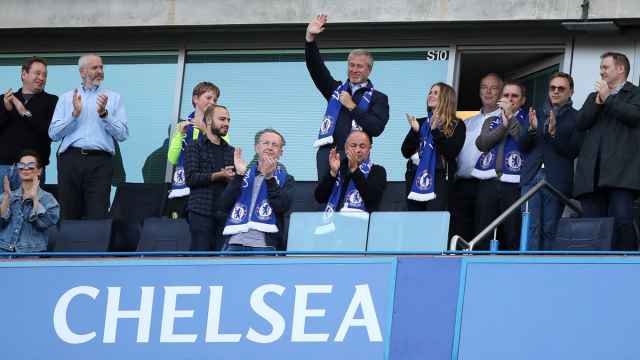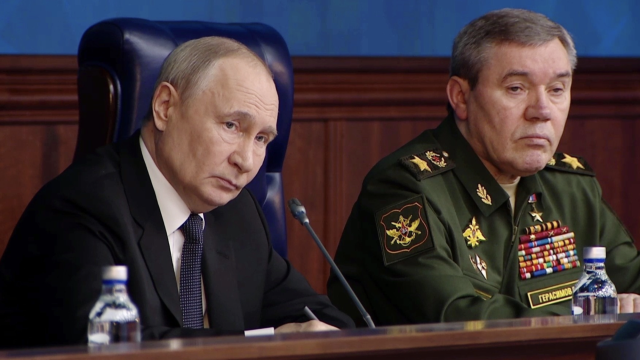NATO still hopes to engage Russia in its prospective missile defense system, but won't yield to Moscow's push for the shield to be run jointly, an alliance envoy said Tuesday.
James Appathurai, deputy assistant NATO secretary-general, said the alliance would like to reach a missile defense deal with Moscow by NATO's summit in Chicago next May, but added that he wouldn't "gamble on expectations."
"We are always, of course, optimistic at NATO," Appathurai said at a news conference. "But we are also determined to keep the hand outstretched. I can't predict, of course, when we would arrive at agreement."
Russia says the U.S.-led missile defense plan could threaten its nuclear forces, undermining their deterrence potential. It has agreed to consider NATO's proposal last fall to cooperate on the missile shield, but the talks have been deadlocked over how the system should be operated. Russia has insisted that the system should be run jointly, which NATO has rejected.
Appathurai insisted that the alliance's 28 members share a treaty obligation to provide security for each other and can't outsource that.
"We can't do that with any other partner no matter how trusted," he said, adding that NATO is offering Russia an "unprecedented level of transparency and cooperation."
Appathurai argued that the alliance has proposed to engage Russia by sharing data and coordinating a response. He also mentioned a U.S. proposal for Moscow to have a close look at the shield's technical capabilities and see that it won't threaten its security.
The NATO proposals have failed to impress the Kremlin, which has continued to push for legal guarantees that the future system wouldn't threaten Russia.
Despite the missile defense dispute, Appathurai argued that current relations between NATO and Russia are "broader and deeper than they have ever been," pointing to Russia providing a vital overland supply link for NATO forces in Afghanistan.
"We have a clear shared interest in ensuring that Afghanistan finds its feet, maintains stability and doesn't export drugs, terrorism or extremism," he said.
The two sides have cooperated successfully on counterterrorism, anti-drug and counterpiracy missions, and "have potential for more in all of these areas," Appathurai said.
"We shouldn't let missile defense become the single prism through which we see our relationship," he added. "It's not the only part and shouldn't define the rest of it."
Appathurai and other NATO officials and military officers opened a four-day seminar Tuesday to brief their Russian counterparts on the alliance's missions and plans.
"It's best to understand each other's perspective, to exchange ideas and to identify best practice," said British Major General Simon Porter. "The future is about working together and understanding each other."
General Vladimir Yakovlev, head of the General Staff of the armed forces' academy, said meetings like this week's seminar will help narrow differences.
A Message from The Moscow Times:
Dear readers,
We are facing unprecedented challenges. Russia's Prosecutor General's Office has designated The Moscow Times as an "undesirable" organization, criminalizing our work and putting our staff at risk of prosecution. This follows our earlier unjust labeling as a "foreign agent."
These actions are direct attempts to silence independent journalism in Russia. The authorities claim our work "discredits the decisions of the Russian leadership." We see things differently: we strive to provide accurate, unbiased reporting on Russia.
We, the journalists of The Moscow Times, refuse to be silenced. But to continue our work, we need your help.
Your support, no matter how small, makes a world of difference. If you can, please support us monthly starting from just $2. It's quick to set up, and every contribution makes a significant impact.
By supporting The Moscow Times, you're defending open, independent journalism in the face of repression. Thank you for standing with us.
Remind me later.






